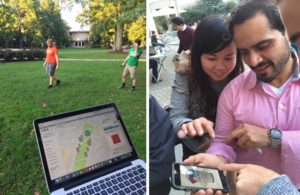
Our team is led by Dr. Benjamin Stokes and based at American University in Washington, DC.
APPROACH: The future of cities depends on participation and engagement. Our lab in Washington, DC, investigates the power of playful tactics to advance equity, strengthen the sense of place, and build strong communities.
Our first book provides the anchor for our approach: “Locally Played: Real-World Games for Stronger Places and Communities” (MIT Press, 2020). The book provides game designers with a model to strengthen existing networks tied to place and gives city leaders tools to look past technology trends in order to make a difference in the real world.
Selected Projects:
(1) Engaging Beyond Our Walls (EBOW)
This national initiative is empowering 50+ cities and towns to make their own neighborhood games and stories. In 2024, we published our recipe book with 10+ models for local libraries, community museums and ordinary residents. The project investigates how we can democratize game design for all towns, marginalized voices, and with minimal technology. Funded by IMLS, with most creations made using our new game engine, Hive Mechanic.
(2) Book in draft: Neighborhood Storytelling System
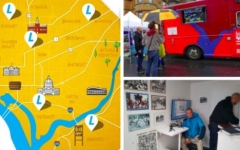
Launched in 2021 with the Smithsonian and the DC Public Library in Washington, DC, this project installed listening stations at the front desk of libraries with more than 700,000 visitors over two years; it brought a repurposed payphone on wheels to the streets; and it mobilized a multimedia truck for traveling exhibits. As a model, he project offers a new approach to circulating stories of local history and activism tied to neighborhoods. Interactive projects remixed the content into scavenger hunts and raffles tied to local business. (Read more via these slides.)
(3) Report: Cities Remix Pokémon GO
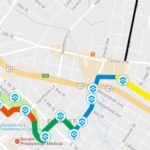
Published in 2018, this was the first large-scale investigation into how cities can appropriate and remix commercial games to advance local goals, including within “open street” festivals and with neighborhood libraries. The report provides a few hints at the future of cities as participatory spaces, showing how playful engagement can connect disparate groups and organizations.
(4) Report: “Impact” with Games

This report shows how we can rethink “impact” with games, and how the right language is crucial to overcome fragmentation. In partnership with Games for Change, with funding from the Packard Foundation.
Funding and collaborators (recent):
- IMLS (Institute for Museum and Library Services), in support of our three-year work to train libraries in 50+ cities to Engage Beyond Our Walls.
- The John S. and James L. Knight Foundation with Niantic, Inc., in support of our research on cities appropriating Pokemon GO (see the report “Cities Remix a Playful Platform“)
- The Packard Foundation and Games for Change, in support of our work on the Game Impact Project
- Smithsonian Women’s Committee for their support of our DC storytelling system for the “Right to the City” exhibit at the Smithsonian Anacostia Community Museum
- The Humanities Truck, based on a grant from The Henry Luce Foundation and Andrew W. Mellon Foundation
- The Leimert Phone Company and our experimental game Sankofa Says (featured at IndieCade)
Tools for creating place-based games:
Authoring tool: Hive Mechanic is a new way to create your own city game, smart city activity, or participatory neighborhood story. It is already in dozens of cities and small towns. Hive can tap into city data, send text messages, offer branching audio stories and use real-time AI. No programming is required to make something for your city. Our goal is to help democratize design, from library maker spaces to community museums. Currently supported with funding from the Institute for Museum and Library Services (IMLS) in partnership with the DC Public Library.
Locally Played Stickers: a logo and campaign for anyone to use, inspired by the success of locally made goods. By calling a game “locally played,” we recognize and elevate a particular spirit of play—including hopes of greater connection to place, our neighbors, and our local history.
More writings on…
- Participatory design (PD) for neighborhood installations (via ResearchGate)
- Stronger communities and playful cities (via ResearchGate)
Meet our full team and alumni at The Playful City Lab!
To stay in touch, reach us on Twitter (@bgstokes) or email bstokes@american.edu.
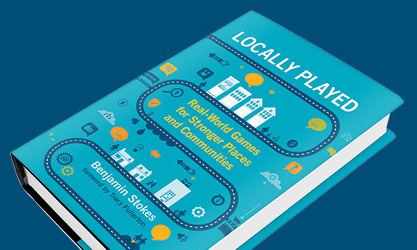
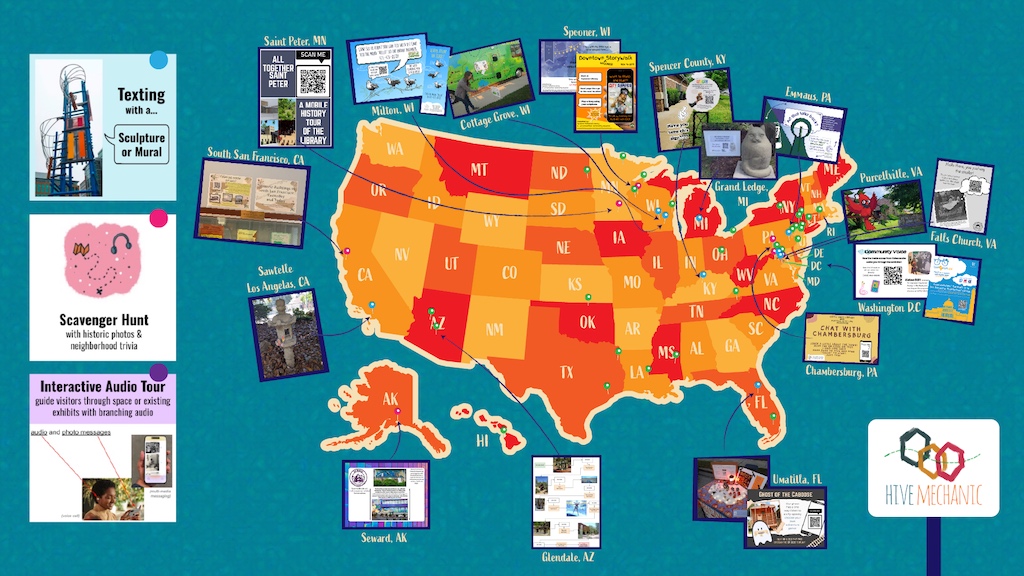
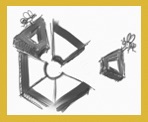
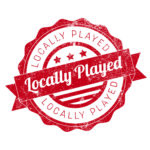
21 comments on “”
Comments are closed.